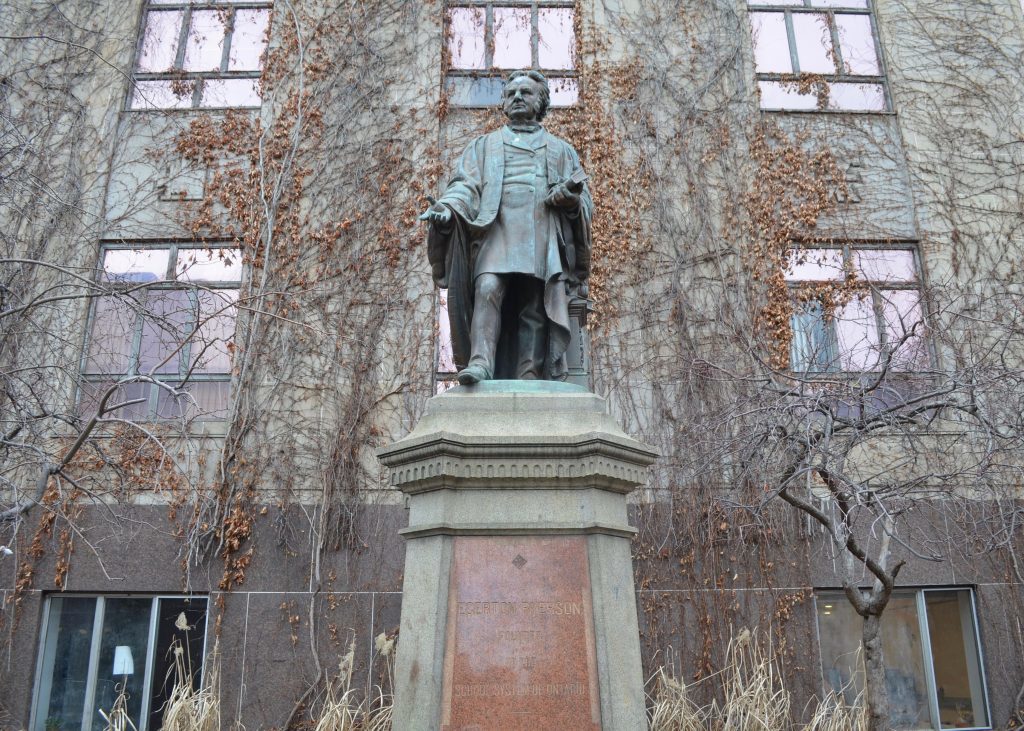Julianna Perkins, RSJ

Poll also suggests that many students would be open to taking one mandatory class on Indigenous culture
Less than 25 per cent of Ryerson University students consider themselves knowledgeable about Indigenous affairs and issues in Canada, suggests a poll conducted by first-year Ryerson journalism students.
The poll, which surveyed 897 students, indicated that only 22% of those polled, or about 1 in 5 students, ranked themselves as knowledgeable of the history and current issues faced by Indigenous populations in Canada.
Some students, like Camryn Harlick, the vice-president of equity for the Ryerson Students’ Union for the 2017-2018 school year, feel that the school could do more when it comes to raising awareness about Indigenous issues. “We pride ourselves in our equity, diversity and inclusion but refuse to engage in a dialogue about colonialism and our roots,” said Harlick.
Ryerson University is located on Anishinaabe, Mississaugas and Haudenosaunee territory, which is bound by the Dish With One Spoon treaty.
The school has already taken some measures to acknowledge Indigenous affairs on campus, such as incorporating “respect for Aboriginal perspectives” into the school’s key values, and hosting Shades of Our Sisters, an exhibition on missing and murdered Indigenous women and girls in Canada.
But the poll suggests that students may be open to a more direct approach when it comes to educating about Indigenous history and issues.
University of Winnipeg: leading by example
The University of Winnipeg recently introduced a policy requiring incoming first-year students to take at least one course on Indigenous culture in Canada in order to graduate from its degree programs. When asked if Ryerson University should institute the same policy, 35.6 per cent of those polled either agreed or strongly agreed.
The University of Winnipeg policy, which came into effect in September 2016, is so far seeing success said Kevin Lamoureux, the school’s associate vice-president of Indigenous affairs. “When this was starting, local media came out to campus looking for the controversial story, and they just couldn’t find it,” he said. The question Lamoureux said he now gets most often from students is, “Why didn’t we learn this any sooner?”
Lamoureux said that most stereotypes of Indigenous people in Canada are not fueled by genuine hate, but by a lack of understanding. “If the problem is ignorance then the solution is education,” he said.
Students come into the mandatory Indigenous course requirement with a variety of knowledge backgrounds, said University of Winnipeg chair of Indigenous studies Jacqueline Romanow. Though some students may consider the new course requirement an “extra burden,” Romanow says the school is proud of its new policy and will be continuing it into the foreseeable future. “Canada was Indigenous land and because of that we feel we have a responsibility to include the story of the people who were here first,” said Romanow.
Mandatory courses do not go far enough
While a similar policy at Ryerson could help increase awareness and understanding of Indigenous culture, Harlick, whose father is a residential school survivor, said the school needs to go further, starting with its mascot, namesake, and founder, Egerton Ryerson. Ryerson was consulted by the Department of Indian Affairs on the creation and design of the residential school system.
“We are directly partaking in colonial violence by celebrating this man,” said Harlick, who wants to start conversations with Ryerson administration about a potential name change and re-branding for the school.
“The worst thing that we can do is avoid talking about these things because they’re uncomfortable,” said Lamoureux. “If Canadians know better, we will do better,” he said.
The survey at Ryerson University of 897 undergraduate students was a randomized poll, conducted person-to-person on March 3-7, 2017. The margin of error is plus or minus three percentage points, 19 times out of 20.

